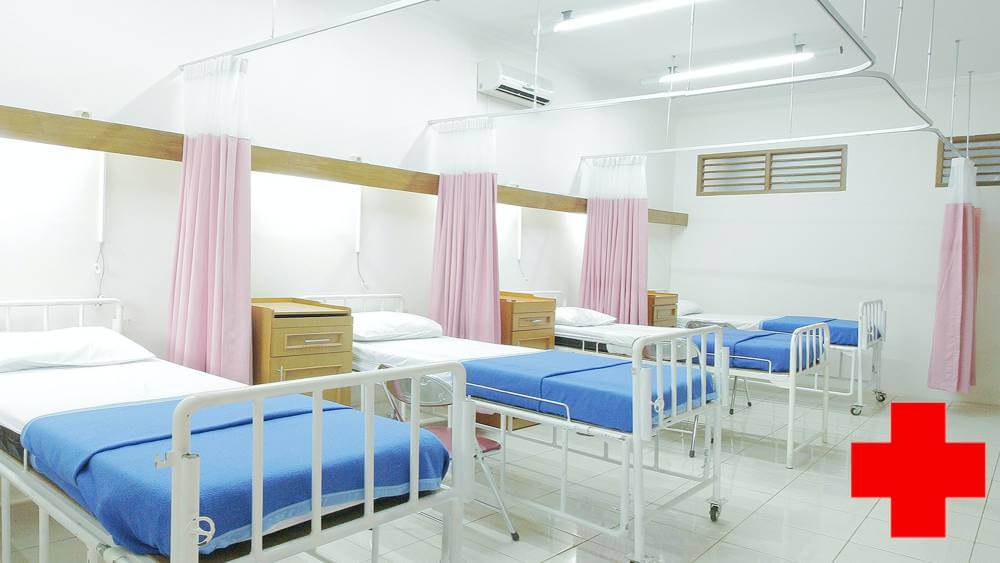Hello there, welcome to another exhilarating read about Pediatric Acute Care Nurse Practitioners!
Today, we’ll walk you through every aspect of the life and career of an Acute Care Pediatric Nurse Practitioner.
At the end of this article, we would have gone over what a Pediatric Nurse Practitioner-Acute Care is, Nurse duties, why you should become one, nursing career and job prospects, and some common PNP-AC frequently-asked questions.
We’ll take you through:
- What is a Pediatric Acute Care Nurse Practitioner?
- Job descriptions of an AC-PNP
- The salary outlook for a Pediatric Acute Care Nurse Practitioner
- Pediatric Acute Care Nurse Practitioner Programs
Let’s get started right away!
What is a Pediatric Acute Care Nurse Practitioner?

Pediatric Acute Care Nurse Practitioners provide care to critically ill, chronically sick, and acutely unwell children and their loved ones in a range of settings, including outpatient and inpatient hospital settings, children’s hospitals, emergency departments, and home care.
Their role in healthcare is both complicated and crucial.
Pediatric Acute Care Nurse Practitioners are expected to have a thorough awareness of how traumas, illnesses, and diseases affect children’s development to treat their patients and manage certain situations.
A job in this sector of Nursing requires patience, empathy, effective communication, great enthusiasm for the patient groups, and the proficiency to manage connections between Caregivers and parents, among other qualities.
Acute Care Pediatric Nurse Practitioner Roles and Job Description

A Pediatric Nurse Practitioner (PNP) helps newborns, children, and adolescents with their medical and health needs.
The Pediatric Nurse can converse with children and ask them questions about their health, especially when they are unable to express their difficulties adequately and are fearful.
Responsibilities of Pediatric Nurse Practitioners:
- Working with children and asking questions about their health in order to diagnose them, and documenting the medical history and symptoms of patients for the Doctor
- Identifying a child’s needs and providing immediate assistance
- Detecting changes in a child’s symptoms and intervening in an emergency
- Participating in the treatment of children’s discomfort.

- Medications, blood draws, and children’s vaccines are all done according to age-appropriate criteria
- Keeping accurate records of temperature, pulse, respiration, and blood pressure
- Examining children for abuse signs and symptoms
- Providing comfort to children who are dying
- Managing parents’ fears and demands, and assisting families in dealing with their child’s illness or injury
- Maintaining current knowledge of new advancements, norms and regulations, drug therapies, equipment, and treatment techniques
How to Become Acute Care Pediatric Nurse Practitioner

To work as a Pediatric Acute Nurse Practitioner, there’s a need for you to obtain a Registered Nurse (RN) License first, earn a postgraduate degree, complete required clinical hour prerequisites or clinical placements, apply for certification in your state, and pass a test.
Stage One: Become an RN (Registered Nurse)
To work as a Pediatric Acute Care Nurse Practitioner, you must first be a licensed RN (Registered Nurse).

To evolve as an RN, you must successfully pass the NCLEX-RN Exam, which is administered by the National Council Licensure Examination.
Stage Two: Go for a Nurse Practitioner Program that is Accredited
You can choose from a variety of Nurse Practitioner Programs, usually online or distance learning preferences.
The majority of the degree programs are master’s or post-master’s.
Make sure the program you’re interested in offers a Nursing degree specialty or concentration in Pediatric Acute Care Nursing.
Verify if your program is approved by the ACEN (Accreditation Commission for Education in Nursing) or the CCNE to guarantee that it will give you the greatest level of proficiency and schooling in the field.
Stage Three: Accumulate 500 to 750 Clinical Practice Credit Hours in Pediatric Acute Care
It is positively advised that you complete more than 650 clinical experience hours before enrolling for the Pediatric Nursing Certification Board’s CPNP-AC (Acute Care Certified Pediatric Nurse Practitioner) Certification Exam.
Stage Four: Take the Acute Care Pediatric Nurse Practitioner Exam
After you’ve completed your recognized program, you’ll be ready to go for the PNCB (Pediatric Nursing Certification Board)’s CPNP-AC (Certified Pediatric Nurse Practitioner-Acute Care) Certification Exam.
Stage Five: In the State where you want to practice, apply for the Pediatric Nurse Practitioner Certification in your State
After completing the program, such a scholar will be eligible to go for the national certification as a CPNP-AC (Certified Acute Care Pediatric Nurse Practitioner) from the PNCB (Pediatric Nursing Certification Board), and licensed in about 50 states.
Pediatric Acute Care NP Scope of Practice

PNP-AC (Acute Care Pediatric Nurse Practitioner) is an Advanced Practice or Postgraduate Degree Nurse who specializes in the acute care of children who are hospitalized or in the Intensive Care Units.
The PNP-ACs are expected to have extensive clinical mastery and proficiency in child health care, allowing them to deliver a wide coverage of healthcare services to children from conception to adolescence.
Physical evaluation, illness management, diagnosis, patients’ families and patient education, discharge scheme, and health restoration are the main goals of these services.
PNP-ACs work as part of the interdisciplinary and primary care healthcare teams in a number of settings.
There is a collaborative measure employed by PNPs with other health experts to provide complete health care to children.
CPNP-AC Certification Program

The PNCB (Pediatric Nursing Certification Board) offers the CPNP-AC (Pediatric Acute Care Nurse Practitioner Certification).
Entry-level RNs who have concluded a post-master’s or DNP degree concentrated in Pediatric Acute Care are qualified for the certification.

The following are the prerequisites for CPNP-AC qualification:
- RN licensure in good standing from the United States, or its territory
- Completed a CCNE or ACEN master’s or DNP Program in Nursing program flaunting a concentration in Dual Acute/Primary Care Nursing or Pediatric Acute Care OR satisfied a Pediatric Acute Care Nurse Practitioner post-certificate master’s program
- At least 500 hours of monitored clinical experience
- Completion of graduate training in progressive health assessment, advanced pharmacology, and pathophysiology/physiology
The Pediatric Acute Care Nurse Practitioner Certification Examination fee is $385, plus a nonrefundable registration fee of $130.
Graduates of the Dual AC and PC PNP Programs are eligible to go for both tests at the exact period.
Pediatric Acute Care Nurse Practitioner Salary

In the year 2022, the typical hourly wage for a Pediatric Nurse Practitioner is $49.60 for PNP-ACs and $54.60 for PNP-PCs.
The national average hourly wage for Nurse Practitioners in the United States is currently set at $53.50.
PNP-ACs have an average salary that is roughly 5.9 percent lower than this figure, whereas PNP-PCs have an average salary that is approximately 3.1 percent higher.
Pediatric Acute Care Nurse Practitioner Programs

The Acute Care Pediatric Nurse Practitioner (ACPNP) specialization trains Nurses to provide Advanced Nursing care to critically, chronically, and acutely ill children in a range of care settings and clinical sites.
The coursework includes topics like clinical diagnosis and decision making, advanced health appraisal, advanced pharmacology, and acutely sick patient care, all of which are given by qualified Physicians.
List of Pediatric Acute Care NP Programs:
The University of Southern California
The USC School of Social Work offers an online MSN Program.
RNs who want to become Family Nurse Practitioners can take this course.
In as little as 21 months, you can get a CCNE-accredited MSN.
Part-time and full-time education choices are available.
Georgetown University
Georgetown University offers an online master’s degree in Nursing.
In as little as 22-24 months, you can earn your master’s degree in Nursing.
Choose from four different APRN Specialties: WHNP, FNP, AG-ACNP, NM/WHNP
Gain a practical background in evidence-based medicine.
St. John Fisher College of Nursing
Wegmans School of Nursing offers an online M.SC. in Nursing.
The Wegmans School of Nursing is rated No. 6 in New York State and among the top 99 Nursing schools in the US.
There are accelerated and part-time options available.
AGACNP, PCFNP, PMHNP, and AGPCNP are the four program possibilities.
Simmons University
Simmons University offers an online Master of Science in Nursing program.
The Commission on Collegiate Nursing Education has granted it accreditation (CCNE).
Preparation for a Family Nurse Practitioner Certification.
Part-time, full-time, and extended study options are available.
Professional Resources for PNP

Professional associations could be valuable resources for future Pediatric Acute Care Nurse Practitioners.
The NAPNP, a national body of Pediatric Nurse Practitioners, is one such organization.
Its goal is to enhance the grade of patient care for children, adolescents, and infants by providing networking prospects and expert aid to its members.
NAPNAP has over 49-50 chapters nationwide and an online chapter.
The PNCB (Pediatric Nursing Certification Board) not only certifies Pediatric Nurse Practitioners but also provides important resources for professionals and scholars, such as a plan of study for continuing education programs.
A lot of the explanations to frequently asked questions concerning the certification examination can also be found on the PNCB website.
Conclusion

The Acute Care Pediatric Nurse Practitioner Program or a Pediatric Nurse Practitioner Program may be right for you if you’re passionate about improving the health of young people and children and also love hard but rewarding work.
The job has various advantages, including the ability to pursue more advanced Nursing roles in children, such as Pediatric Clinical Nurse Specialist.
And the ability to make a difference in the lives of your patients and their family members.
To understand more about the particular challenges and benefits of Pediatric Acute Care Nursing, contact professionals in the field and current students.
FAQs

What State Do Pediatric NPs Make the Most Money?
The typical entry-level salary for a Pediatric Nurse Practitioner is $79,100. New Jersey ($136,600), Massachusetts ($136,600), Connecticut ($134,300), and California ($136,600) are the states with the highest pay for Pediatric Nurse Practitioners.
What is the Difference Between a Pediatric Nurse and a Pediatric Nurse Practitioner?
A Pediatric Registered Nurse has earned an Associate’s Degree in Nursing (ADN) or Bachelor of Science in Nursing (BSN) degree and passed the NCLEX-RN Examination. On the other hand, a Pediatric Nurse Practitioner (PNP) has earned a Master of Science in Nursing (MSN) or Doctor of Nursing Practice (DNP) degree in Nursing.
Should I Do PNP or FNP?
PNPs indicate an important distinction: their patient demographics. Acute Pediatrics care for patients from infancy to young adulthood, while FNPs care for patients throughout their lives. PNPs provide a detailed assessment of their patients’ development as they go through childhood.
What is the Role of a Pediatric Nurse Practitioner?
A Pediatric Nurse Practitioner (PNP) is an APRN (Advanced Practice Registered Nurse) who specializes in providing care for babies, newborns, adolescents, young people, and toddlers. PNPs specialize in well-child care and the treatment and prevention of common pediatric chronic illnesses and acute conditions.
What is the Difference Between a Family Nurse Practitioner and a Pediatric Nurse Practitioner?
The main distinction between an FNP and a PNP is that a PNP focuses on providing care to children from birth to adolescence, whereas an FNP’s concentration is broader. FNPs are capable of caring for family members of all ages, from infants to the elderly.
What Does PNP Mean in Healthcare?
Pediatric Nurse Practitioners (PNPs) are pediatric Health Care Providers who are committed to enhancing the health of children. PNPs have received advanced training in pediatric health care and Nursing and work with children and families in a range of settings.
What is an Acute Care Pediatric Nurse Practitioner?
Pediatric Acute Care Nurse Practitioners take care of ill children and their families. These children are usually seriously, critically, or chronically ill. They do this in a range of settings, such as emergency departments, outpatient and inpatient hospital settings, pediatric intensive care, and home care settings.
What is Pediatric Acute Care?
Acute Care Pediatric Nurse Practitioners are highly trained medical professionals that specialized in providing patient care to children who are dealing with acute illnesses and other complex issues.
Can a PNP AC Work in a NICU?
The Pediatric Nurse Practitioner-Acute Care (PNP-AC) provides critical care that is oriented toward the family for infants, adolescents, children, and young adults who are dealing with unstable complex acute health conditions, chronic conditions, or critical health problems.
What is FAAN in Nursing?
Fellows of the American Academy of Nursing are invited to join the organization based on their leadership and accomplishments (FAAN). The FAAN status awarded by the American Academy of Neurology should not be confused with this one.









